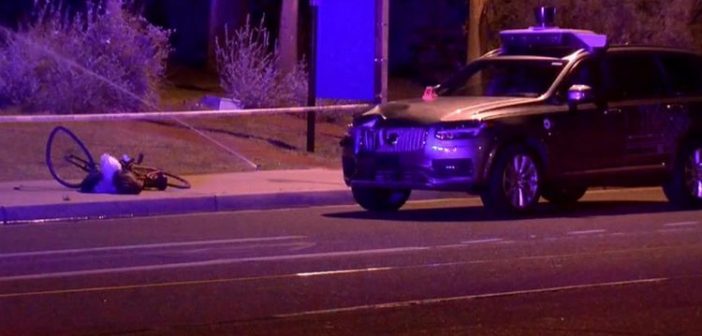Uber has landed $500m (£389m) of investment from Toyota as it renews efforts to build self-driving cars for its ride-hailing app.
The company encountered a series of setbacks when it tried to develop autonomous technology on its own – and five months ago, its plans were derailed after a self-driving car ran over and killed a pedestrian in the US.
Unveiling their new partnership, Uber and Toyota said they hope to roll out their pilot programme in 2021, leading to the “mass production” of self-driving vehicles using technology from both companies.
The vehicles, based on Toyota’s Sienna minivan, would be operated by “mutually agreed-upon third-party autonomous fleet operators”.
Their individual efforts to develop driverless cars have proved costly amid a race to the top involving traditional carmakers and tech companies alike.
Uber only recently restarted trials – with drivers firmly behind the wheel – following March’s fatal collision, where a woman pushing a bike died after being struck by one of its vehicles as she crossed a dark street in Arizona.
Although Elaine Herzberg, 49, was spotted by the vehicle’s sensors, its automatic braking function was disabled and its human backup driver had been distracted.
Uber has also faced an allegation of intellectual property theft in relation to the technology – agreeing to pay Google-owned Waymo $245m (£190m) in stock to settle the case without acknowledging wrongdoing.
Toyota, which is the world’s largest carmaker by volume, is believed by some analysts to be lagging rivals in the race for autonomous vehicles, which also include China’s Alibaba.
Uber chief executive Dara Khosrowshahi announced the deal just days after he gave an interview signalling a shift in focus from cars to bikes and scooters.
He said: “Our goal is to deploy the world’s safest self-driving cars on the Uber network, and this agreement is another significant step towards making that a reality.”
Self-driving car technology alongside greater use of bikes and scooters would cut the gig economy company’s exposure to labour while its partnership with Toyota also promises to spread autonomous vehicle development costs.
Hans Greimel, Asia editor for Automotive News, said: “They are feeling the pressure and they are really turning their attention towards this field.
“It is a wide-open field and everybody is scrambling to feel their way. Maybe Toyota feels a sense of crisis, maybe they had a rough start but I don’t feel they are behind.”
Toyota shares were almost 2% higher in Tokyo trading on Tuesday while analysts said the size of Toyota’s investment in Uber valued the California-based company at $72bn (£55.8bn).
From – SkyNews




